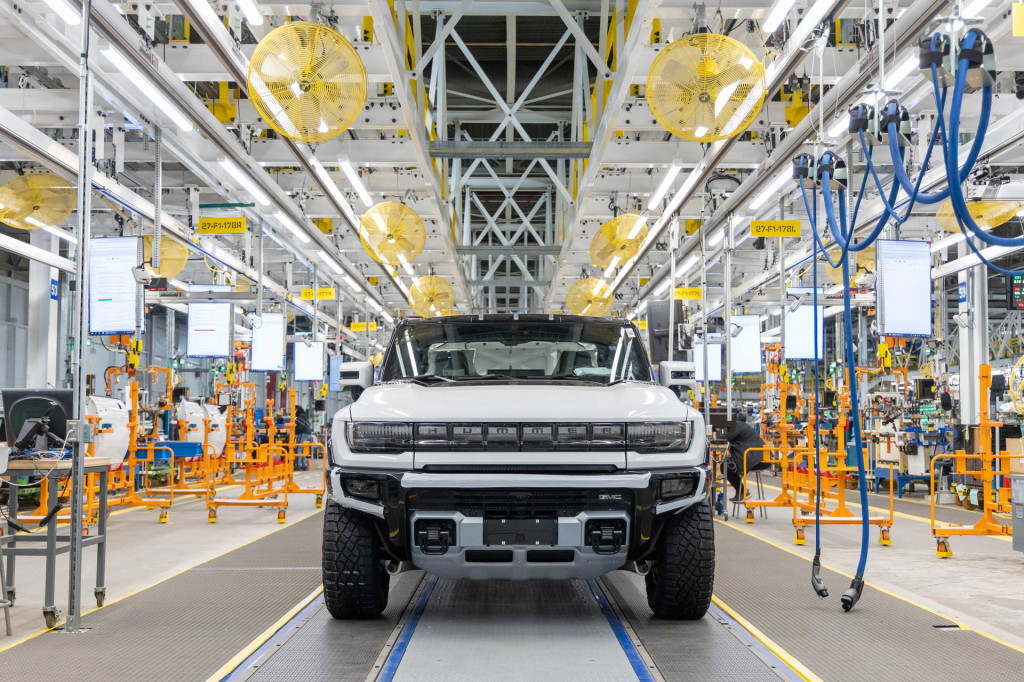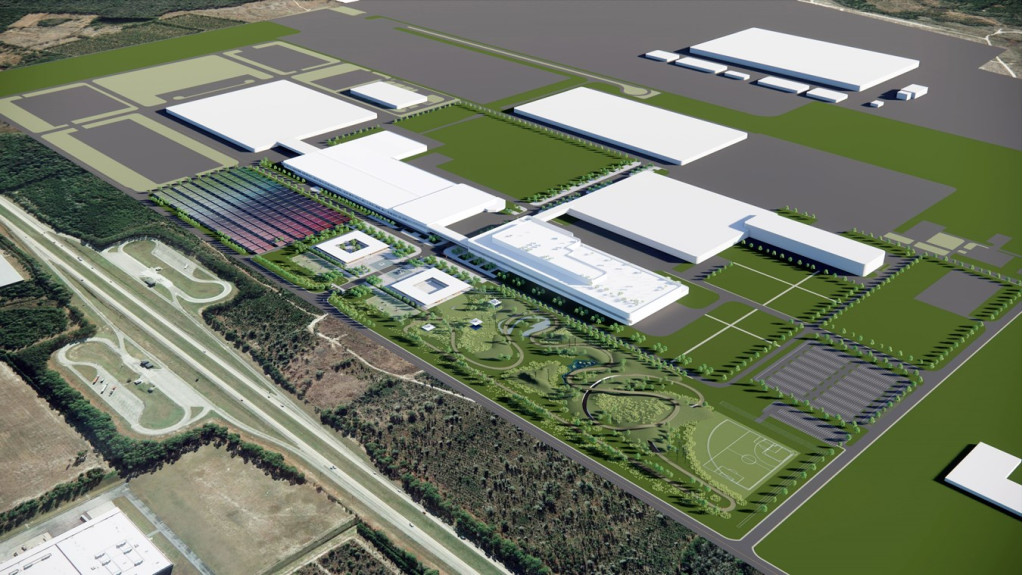Republican lawmakers are seeking to block stricter emissions rules that would require more EVs, even as many Republican-led states stand to benefit from new manufacturing jobs related to the EV boom.
A bill in the House of Representatives called the Preserving Choice in Vehicle Purchases Act was introduced in March and advanced from the House Energy and Commerce Subcommittee to Full Committee consideration last week. It seeks to "amend the Clean Air Act to prevent the elimination of the sale of internal combustion engines."
Federal emissions rules don't officially mandate EVs, but they're anticipated to result in 67% EVs by 2032. California, however, as adopted rules that effectively mandate EV sales by 2035.

2022 GMC Hummer EV pre-production at Factory Zero plant in Detroit, Michigan
Another recently introduced House bill, the Choice in Automobile Retail Sales (CARS) Act would block the proposed EPA regulations, and would prohibit regulations mandating any specific technology or limiting sales of vehicles of a certain powertrain type, according to Fox News.
This bill was introduced by Republican Congressmen Tim Walberg and Andrew Clyde, who represent Michigan and Georgia, respectively. In a statement, Clyde said the rules may be "enriching China," and that it's an attack on rural America. However, the reality is that these laws provide an incentive for U.S.-built EVs that doesn't exist for internal-combustion vehicle manufacturing, which could continue moving offshore, including to China.

Kia EV manufacturing in Georgia
The state Clyde represents is one of several Midwest and Southeastern U.S. states seen as part of the EV "battery belt," stretching from Michigan, Indiana, and Ohio, down to Georgia and South Carolina, and includes a number of states with lawmakers simultaneously seeking EV manufacturing jobs but resisting policy that favors the product. Georgia is anticipated to benefit from large EV manufacturing projects, including EV assembly plants for Rivian and Hyundai-Kia slated to start producing vehicles in 2024. Hyundai's assembly plant will be supported by a joint-venture battery plant with LG.
Michigan's auto industry is already transitioning to EVs with projects like General Motors' "Factory Zero" repurposing of the automaker's Detroit-Hamtramck assembly plant.
The outcome of the 2024 presidential election will ultimately decide the next few years' worth of emissions regulations. Reuters reported recently that former President Donald Trump, who is among the Republican candidates running in 2024, has vowed to "terminate" green vehicle mandates.












